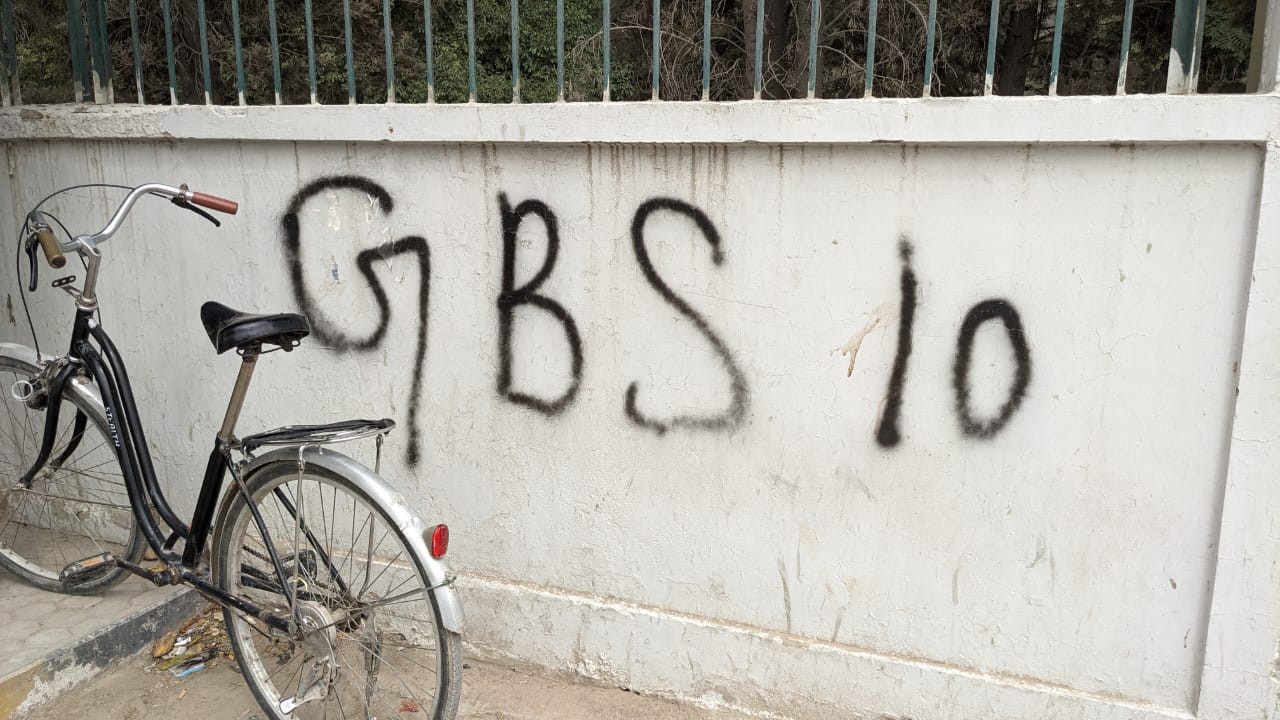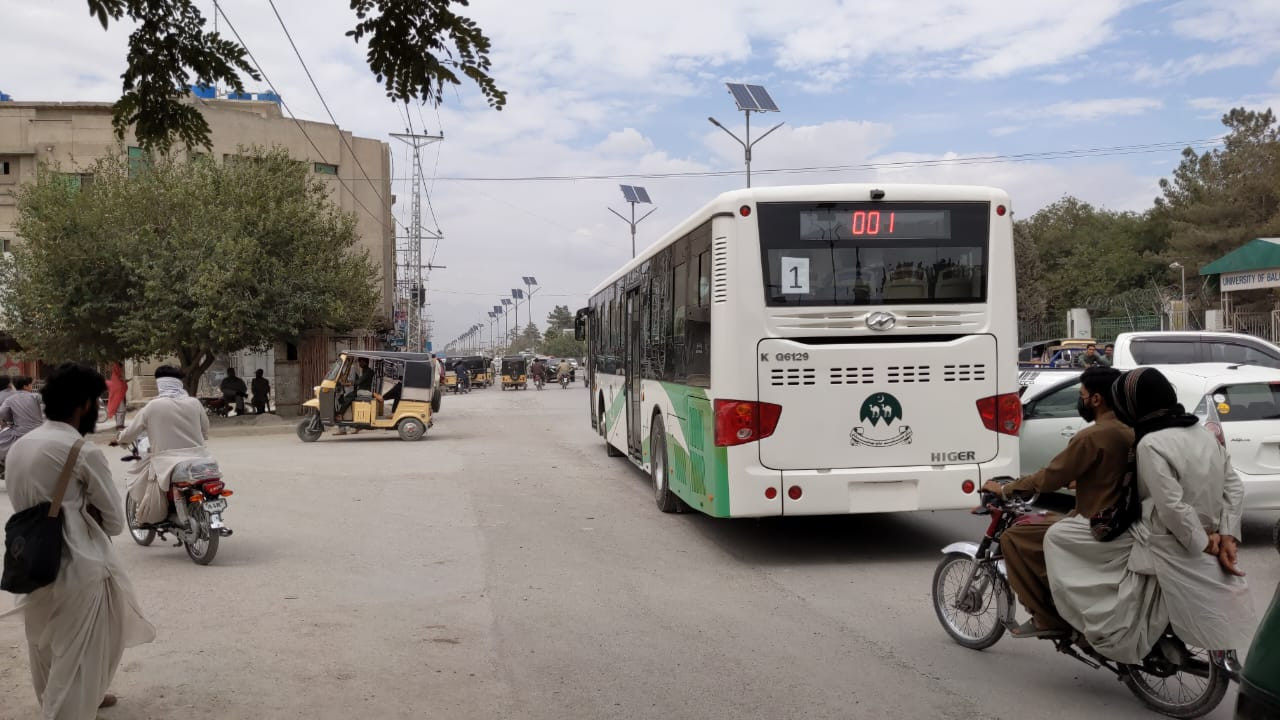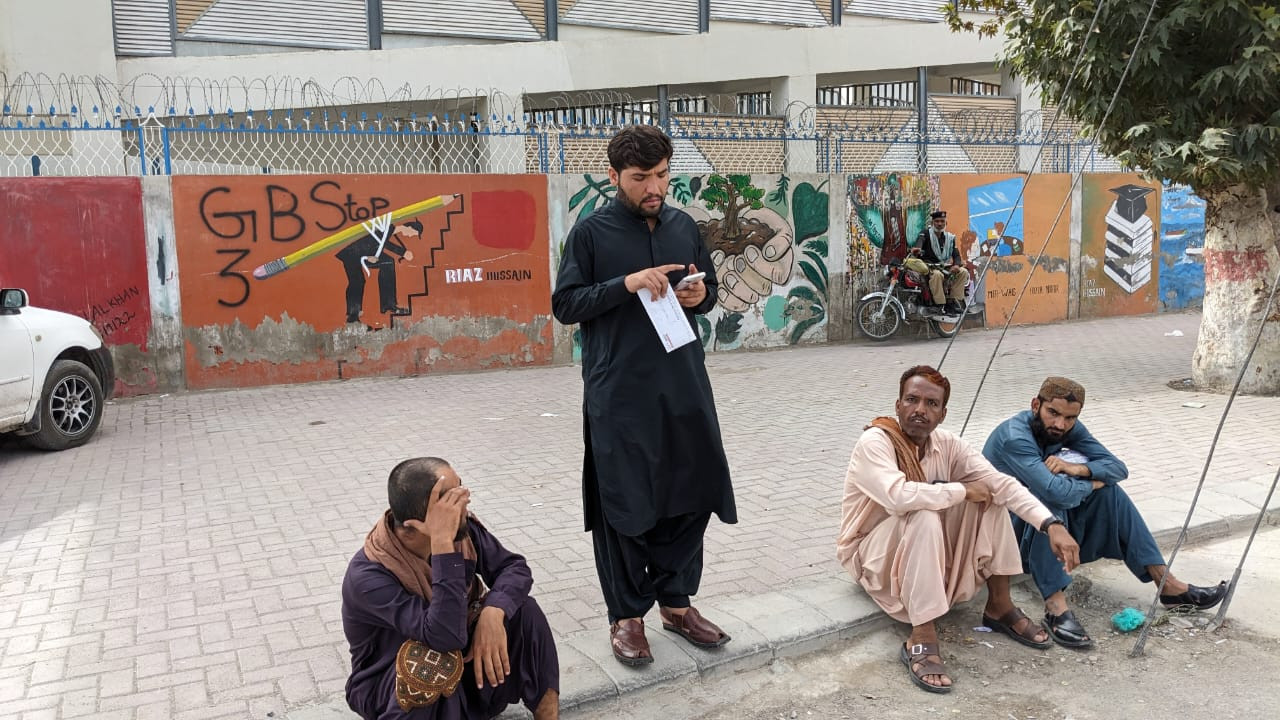In a pioneering move towards sustainable urban mobility, the Balochistan Government recently unveiled its Green Bus Service, an initiative that seeks to transform the daily commute for its residents while significantly reducing the carbon footprint. Launched on the Public Private Partnership (PPI) model with Faisal Movers, the service was initiated in response to the growing need for efficient and eco-friendly transportation solutions. It marks a significant milestone in Quetta's transportation landscape, addressing multiple challenges that have long plagued the city's commuters. The modern, environmentally-friendly buses will enhancing the overall quality of life for Quetta’s residents.
The bus service spanning an impressive distance of 18.7 kilometers covers a comprehensive route with 18 stops. Commencing its journey from Balochistan University, the bus proceeds through a well-planned route passing by the QDA Office, Helper Eye Hospital, Imdad Chowk, Hockey Chowk, commissioner office, and GPO Chowk ensuring accessibility to important administrative and healthcare facilities, and providing easy access to commercial and government establishments. The route further extends to Ufone Chowk, Kohla Pattak, and the Askari Park DHA stop, while the inclusion of Kasi Bahria Office, Ali Mehmood Super Mart, Killi Gul Mohammad, and Killi Almas ensures connectivity to vibrant commercial areas within the city. It also caters to the transportation requirements of the academic community, with stops at educational institutions like BUITEMS University and Agriculture University before it concludes at Baleli Custom stop.

Saleem, originally from Khuzdar, is presently pursuing his studies in Quetta. "Previously, I used buses to commmute between the university, my accommodation, and the library but the fares were too high and the drivers were reckless and indulged in over-speeding,” he says. With the new bus service, commuting has improved a lot in terms of convenience and safety.”
By strategically connecting various neighborhoods to essential educational institutions and bustling commercial centres, the bus service can cater more effectively to diverse public needs. In particular, a prudent step would be to extend the bus service all the way to Custom Sariab Road, which houses a significant population from low-income backgrounds. This expansion would not only benefit these communities but also uphold the service's commitment to inclusivity and equitable access to sustainable transportation solutions. Operations in areas such as Brewery Road, Qambrani Road, Nawakilli, Spiny Road, Sabzal Road, Jinnah Town, and Smungli Road which are bustling key commercial zones and residential hubs within the city. By expanding its reach to cover these prominent regions, the bus service can also help reduce traffic congestion.
Asghar Baloch, a 32-year-old resident of Burma Hotel Sariab, believes that this omission of their area from the route is discriminatory towards the poor people living around Sariab Road. Asghar points out that a majority of the residents here come from poor backgrounds and are compelled to rely on expensive local buses that have limited stops, going only as far as Salem Complex.
By extending the service to cover Burma Hotel Sariab and the surrounding neighbourhoods, the underprivileged residents who face financial constraints while commuting will be relieved

Currently, the service operates with only eight buses, which can make it challenging to adhere to exact timings. Unlike the Lahore Metro, the Green Bus Service lacks a separate route, and the heavy traffic on Quetta's roads adds to the difficulties faced by the public.
However, implementing a modern GPS system along with a user-friendly phone application can effectively address this issue. In this way, the passengers would be able to track the real-time location of buses and determine the estimated arrival time at their respective stops.
Currently, the service relies on the traditional approach of conductors who manually collect fares from each passenger as they board the bus. To enhance efficiency and ensure a seamless payment process, modern fare collection methods should be implemented such as contactless smart cards or mobile payment systems. With contactless smart cards, passengers can simply tap their cards upon boarding, allowing for swift and hassle-free transactions. Similarly, mobile payment systems would enable users to pay through their smartphones, eliminating the need for cash and further speed up the process. This not only reduces the chances of errors in fare collection, but also minimises cash handling and associated security risks, and provide valuable data insights to optimise route planning and resource allocation.
"It is crucial to ensure its accessibility and sustainability in the long run," says Beberg Baloch, a 25-year-old student residing on Sariab Road.

"The current paper ticket system doesn't appear to be environmentally friendly, and it poses challenges for conductors to keep track of every passenger boarding and alighting at each stop,” he points out. “This could lead to some passengers being missed, resulting in uncollected fares. A digital card system similar to Lahore's Red-Bus system would streamline the fare collection process and make it more effective.”
To create a positive commuting experience, the bus service must prioritise both passenger comfort and safety through several key measures such as regular maintenance of the buses. To further enhance safety, it is advisable to have a security guard on board each bus. The presence of a vigilant and trained staff member can offer reassurance to passengers and act as adeterrent against potential untoward incidents. Additionally, a complaint number should be prominently displayed on each bus to enable passengers to easily report any concerns or issues they may encounter during their journey. An efficient feedback and resolution system can help address problems promptly, and instill confidence in passengers that their voices are heard and their safety is a top priority.
There are however a few challenges such as some bus stops that lack adequate infrastructure. Wall chalking indicates their location and there is no designated waiting area. “A simple yet effective solution would be for the government to install benches and shades along existing footpaths for people to wait for the buses,” says 55-year-old Haji Ghulam Haider, a resident of Quetta. “Clear and informative sign boards would enable people to easily identify the designated stops and bus routes serving those locations. The provision of water dispensers, trash bins, and restrooms would further elevate passenger experience and reflect a commitment to passenger well-being.

The transporters in Quetta have not welcomed the bus service and deem it a conspiracy to bring in transporters from other provinces, potentially impacting their source of income. While they admit that the conditions of their buses may not be ideal, they are hesitant to cooperate and integrate with the new measure, even if the government offers financial support.
It is believed that the transporter mafia’s resistance stems from their longstanding monopoly in the industry. “They have enjoyed a strong grip on the transportation sector for a considerable period,” says 30-year old Nazeer, who uses public transport for his daily commute to work. “I hope that as the new bus service expands, people realise the disparities in driving practices and conduct between the two options. I do not wish for the source of income for drivers and conductors to be taken away, but integrating them within the new framework would work for everyone.
By continuously addressing the needs and feedback of its passengers and prioritising passenger comfort, safety, and convenience, the Green Bus Service will shape the city's transportation landscape, fostering a greener, more connected, and people-centric urban environment for the future.
Muhammad Zafar Baloch is freelance journalist based in Quetta
All facts and information are the sole responsibility of the writer
